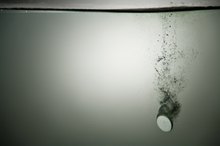What does fact checked mean?
At Healthfully, we strive to deliver objective content that is accurate and up-to-date. Our team periodically reviews articles in order to ensure content quality. The sources cited below consist of evidence from peer-reviewed journals, prominent medical organizations, academic associations, and government data.
- American Council on Exercise: 7 Smart Post-Workout Snacks and How to Know When You Really Need One
- American Council on Exercise: What Exercises Should I Perform if I’m Trying to Gain Weight?
- American College of Sports Medicine, Roundtable: The Physiological and Health Effects of Oral Creatine Supplementation
- American College of Sports Medicine, Roundtable: The Physiological and Health Effects of Oral Creatine Supplementation
The information contained on this site is for informational purposes only, and should not be used as a substitute for the advice of a professional health care provider. Please check with the appropriate physician regarding health questions and concerns. Although we strive to deliver accurate and up-to-date information, no guarantee to that effect is made.
How to Build Muscle Without Creatine
Health and fitness magazines provide a wide variety of articles that make claims to increase your muscle mass with the use of creatine. Creatine, a nonessential dietary element found in meat and fish, is used as a supplement by athletes to enhance exercise performance. While creatine is perceived as relatively safe, the American College of Sports Medicine notes that there's been little critical evaluation and research done to establish the positive and negative health impacts of this supplement 4. Increasing your muscle mass is achievable without taking creatine.
Perform weighted compound exercises that work multiple muscle groups at the same time like bench presses, lat pull-downs, squats and lunges. Mix with body weight compound exercises like push-ups, pull-ups and burpees. Perform 10 to 12 repetitions for each exercise.
How Do You Lose Weight While Taking Prometrium?
Learn More
Eat every three to four hours to fuel your workouts and aid in muscle recovery. Avoid processed foods. Consume foods in their whole form focusing on fruits, vegetables, lean proteins and complex carbohydrates.
Get some rest. Take at least one rest day per week to allow muscles to recover from your workouts. Sleep eight hours per night to allow the release of growth hormones that help build muscle.
How Do I Take ZMA Anabolic Testosterone Booster?
Learn More
Drink 1 gallon of water per day to stay hydrated and support activity. Drink enough water to replace your daily fluid losses and drink more on days when temperature and humidity are high.
Tips
Lift heavy weight and keep your repetitions low. The last few repetitions should be very challenging.
Related Articles
References
- American Council on Exercise: 7 Smart Post-Workout Snacks and How to Know When You Really Need One
- American Council on Exercise: What Exercises Should I Perform if I’m Trying to Gain Weight?
- USA Today: Drink More Water, Lose More Weight
- American College of Sports Medicine, Roundtable: The Physiological and Health Effects of Oral Creatine Supplementation
- Cooper Institute: Creatine Supplements: Friend or Foe for Exercise Performance?
- Kreider, R. B. International Society of Sports Nutrition position stand: safety and efficacy of creatine in exercise, sport, and medicine. Journal of International Society of Sports Nutrition. 2017; 14: 18.
- MedlinePlus. Creatine.
Writer Bio
Nicole Hogan-Jenkins began writing professionally in 2010. She is a certified personal trainer, sports nutrition specialist, fitness business owner and competitive fitness athlete. Hogan holds a Bachelor of Arts in journalism from Indiana University.









